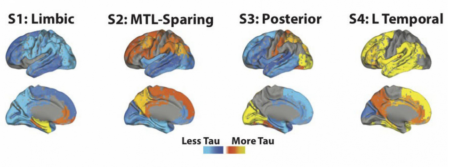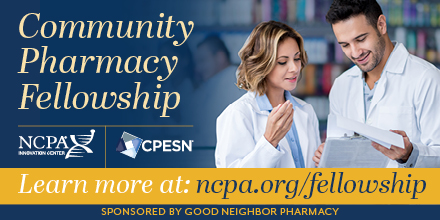Naloxone bulks up, four kinds of Alzheimer’s, why Bactine could be enough, and more
04 May 2021
Posted by Andrew Kantor
Clean, don’t cream
If you get a cut, you plop some antibiotic cream on it, slap on a bandage, and Bob’s your uncle. But does the antibiotic really help? In a small trial, Johns Hopkins researchers found … no, no it doesn’t.
To the surprise of the researchers, the majority of the antibiotic users experienced slower healing. Furthermore, in a concurrent study in mice, the antibiotics prevented the regeneration of hair follicles after wounding.
Sure, there will be further research (as always), but their conclusion is that “normal levels of bacteria — and even bacterial infections that the body could fight off — would actually improve healing.”
Before you rearrange your first aid shelf, keep in mind that this was a small study. Next cut, though, consider washing it out, spraying some Bactine to clean it, and letting the body do its thing.
Sold!
Nashville-based HCA has sold four Georgia hospitals — Cartersville Medical Center, Coliseum Medical Center, Coliseum Northside, and Eastside Medical Center — to Piedmont Healthcare for about $950 million and Piedmont’s third- and fourth-round draft picks in 2022.
New fund to reimburse you for Covid-19 vaccinations
You can’t bill people for the Covid vaccine, but what if they don’t have insurance to cover it? A new HHS program from the Biden administration — the COVID-19 Coverage Assistance Fund (CAF) — will cover “costs of administering COVID-19 vaccines to patients enrolled in health plans that either do not cover vaccination fees or cover them with patient cost-sharing.”
The CAF will reimburse you at Medicare rates (which were increased in March, so they should actually cover your costs).
- Click here for the main CAF page.
- Love webinars? There’s one for you on Thursday; click here to register for that.
Covid-19 updates
So much for herd immunity
Thanks to people refusing to be vaccinated — and the new variants emerging — it seems unlikely that that U.S. will have enough protected people to reach herd immunity for Covid-19.
Instead, [epidemiologists] are coming to the conclusion that rather than making a long-promised exit, the virus will most likely become a manageable threat that will continue to circulate in the United States for years to come, still causing hospitalizations and deaths but in much smaller numbers.
Give us a hug
If they behave, the Brits — known for their affectionate nature — will be allowed to hug again. Soon.
Big chains have the most waste
CVS and Walgreens have wasted the lion’s share of lost vaccine doses, according to the CDC.
The pessimist points out that those two chains alone wasted more vaccine than just about every state … combined — about 129,000 out of the total 183,000 doses that expired in the country.
The optimist points out that the waste was small in comparison to shots given (half a percent, in Walgreens’ case). In fact, health officials use these waste reports to help determine where there is need and where there isn’t.
CVS says that most of the waste was because of “poor planning early in the rollout, when the Trump administration leaned heavily on CVS and Walgreens to vaccinate residents and staff members of long-term care facilities.” (They really weren’t familiar with LTC facilities, or equipped to provide vaccines across multiple locations like that.)
Younger people are becoming the new surge
So guess who’s now the biggest victims of the pandemic? That’d be younger people — Millennials are making up more and more of the serious Covid cases. (H/T to Georgia Health News for pointing this one out.)
“We’re now seeing people in their 30s, 40s and 50s — young people who are really sick. Most of them make it, but some do not. … I just lost a 32-year-old with two children, so it’s heartbreaking.”
We’re at the endgame, folks — we just have to hold out a little bit longer.
Stronger naloxone
You might read that often someone OD’ing on opioids needs several shots/sprays of naloxone. Now the FDA has approved a higher dose for the spray — 8 mg instead of 2 or 4 mg.
Opioid trial opens
The trial of drug distributors is about to begin in Charleston, W.Va., pitting AmerisourceBergen, Cardinal, and McKesson against a group of the state’s cities, counties, and towns.
It’s the first of several of these cases across the U.S. from the places that opted out of the big nationwide opioid settlement. (This is against distributors — don’t confuse it with the one in California against drug makers.) The case opened yesterday and could continue for quite a while.
Axis and our eyes
The latest axis to think about is the newly dubbed “gut-retina axis” — or in plain English, the connection between gut bacteria and age-related macular degeneration.
And yes, according to a Tufts University research team, there is a connection.
[W]hen mice were given antibiotics known to kill healthy gut bacteria, it led to degeneration of the retina and the retinal pigment epithelium in some mice.
Apparently it’s the Akkermansia bacteria that has the effect, because replacing those via fecal transplant restored the retinal protection. (And, of course, they took a shot at the Western Big Mac-based diet, too, even though it was only tangentially related.)
The four horsemen of Alzheimer’s
An international team researchers has figured out that there are actually four distinct types of Alzheimer’s, based on where in the brain tau proteins tend to build up: limbic, MTL-sparing, posterior, and left temporal.
“Because different regions of the brain are affected differently in the four subtypes of Alzheimer’s, patients develop different symptoms and also prognoses. […] [I]t also makes us wonder whether the four subtypes might respond differently to different treatments.”

Special Delivery by T cell
A big weakness in immunotherapy for cancer is that it doesn’t work so well on solid tumors, although the idea itself is pretty cool. So researchers at Massey Cancer Center came up with a new trick for getting the immune system to target cancer. They found a way get the body’s T cells to deliver a particular gene to cancer cells — a gene called MDA-7.
MDA-7’s trick is that it gets those cancer cells to start producing IL-24, a protein that … well, that kills cancer cells. So it’s like tricking a factory into producing factory-killing robots.
MDA-7/IL-24 binds to receptors on the surface of cells and instructs them to make and release more copies of the MDA-7/IL-24 protein. If the cell is normal, the protein is simply secreted and no damage occurs. But if the cell is cancerous, MDA-7/IL-24 causes oxidative stress damage and ultimately cell death, not only within the primary tumor but also among its distant metastases.
Why not become a fellow?
Here’s a great way to require your friends to sing, “He’s (or she’s) a Jolly Good Fellow” every time you walk into a room: Check out the NCPA/CPESN community pharmacy fellowship program.
It’s open to any pharmacist employed at a CPESN pharmacy. (Want to talk to a human being about it instead? Reach out to NCPA’s Carlie Traylor at (229) 269-9000. )
)


